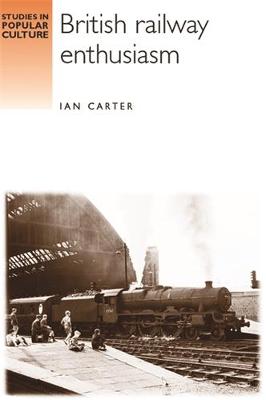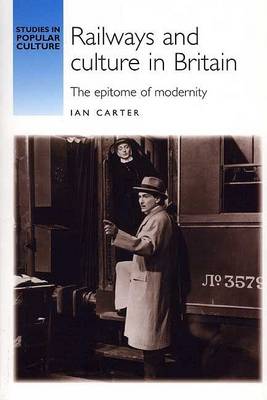Studies in Popular Culture
2 total works
This is the first academic book to study railway enthusiasts in Britain. Far from a trivial topic, the postwar train spotting craze swept most boys and some girls into a passion for railways, and for many, ignited a lifetime's interest.
British railway enthusiasm traces this postwar cohort, and those which followed, as they invigorated different sectors in the world of railway enthusiasm - train spotting, railway modelling, collecting railway relics - and then, in response to the demise of main line steam traction, Britain's now-huge preserved railway industry. Today this industry finds itself riven by tensions between preserving a loved past which ever fewer people can remember and earning money from tourist visitors.
The widespread and enduring significance of railway enthusiasm will ensure that this ground-breaking text becomes a key work in transport studies, and will appeal to enthusiasts as much as to students and scholars of transport and cultural history.
British railway enthusiasm traces this postwar cohort, and those which followed, as they invigorated different sectors in the world of railway enthusiasm - train spotting, railway modelling, collecting railway relics - and then, in response to the demise of main line steam traction, Britain's now-huge preserved railway industry. Today this industry finds itself riven by tensions between preserving a loved past which ever fewer people can remember and earning money from tourist visitors.
The widespread and enduring significance of railway enthusiasm will ensure that this ground-breaking text becomes a key work in transport studies, and will appeal to enthusiasts as much as to students and scholars of transport and cultural history.
The 19th-century's steam railway epitomized modernity's relentlessly onrushing advance. In this work Ian Carter delves into the cultural impact of train technology, and how this was represented in British society. Why for example did Britain possess no great railway novel? The work's first half tests that assertion by comparing fiction and images by some canonical British figures (Turner, Dickens, Arnold Bennett) against selected French and Russian competitors: Tolstoy, Zola, Monet, Manet. The second half proposes that if high cultural work on the British steam railway is thin, then this does not mean that all British culture ignored this revolutionary artefact. Detailed discussions of comic fiction, crime fiction and cartoons reveal a popular fascination with railways tumbling from vast (and hitherto unexplored) stores of critically overlooked genres. A final chapter contemplates cultural correlations of the steam railway's eclipse. If this was the epitome of modernity, then does the triumph of diesel and electric trains, of cars and planes, signal a decisive shift to postmodernity?

